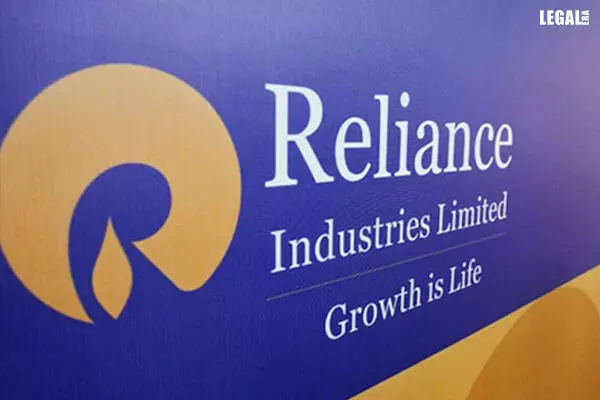- Home
- News
- Articles+
- Aerospace
- Artificial Intelligence
- Agriculture
- Alternate Dispute Resolution
- Arbitration & Mediation
- Banking and Finance
- Bankruptcy
- Book Review
- Bribery & Corruption
- Commercial Litigation
- Competition Law
- Conference Reports
- Consumer Products
- Contract
- Corporate Governance
- Corporate Law
- Covid-19
- Cryptocurrency
- Cybersecurity
- Data Protection
- Defence
- Digital Economy
- E-commerce
- Employment Law
- Energy and Natural Resources
- Entertainment and Sports Law
- Environmental Law
- Environmental, Social, and Governance
- Foreign Direct Investment
- Food and Beverage
- Gaming
- Health Care
- IBC Diaries
- In Focus
- Inclusion & Diversity
- Insurance Law
- Intellectual Property
- International Law
- IP & Tech Era
- Know the Law
- Labour Laws
- Law & Policy and Regulation
- Litigation
- Litigation Funding
- Manufacturing
- Mergers & Acquisitions
- NFTs
- Privacy
- Private Equity
- Project Finance
- Real Estate
- Risk and Compliance
- Student Corner
- Take On Board
- Tax
- Technology Media and Telecom
- Tributes
- Viewpoint
- Zoom In
- Law Firms
- In-House
- Rankings
- E-Magazine
- Legal Era TV
- Events
- Middle East
- Africa
- News
- Articles
- Aerospace
- Artificial Intelligence
- Agriculture
- Alternate Dispute Resolution
- Arbitration & Mediation
- Banking and Finance
- Bankruptcy
- Book Review
- Bribery & Corruption
- Commercial Litigation
- Competition Law
- Conference Reports
- Consumer Products
- Contract
- Corporate Governance
- Corporate Law
- Covid-19
- Cryptocurrency
- Cybersecurity
- Data Protection
- Defence
- Digital Economy
- E-commerce
- Employment Law
- Energy and Natural Resources
- Entertainment and Sports Law
- Environmental Law
- Environmental, Social, and Governance
- Foreign Direct Investment
- Food and Beverage
- Gaming
- Health Care
- IBC Diaries
- In Focus
- Inclusion & Diversity
- Insurance Law
- Intellectual Property
- International Law
- IP & Tech Era
- Know the Law
- Labour Laws
- Law & Policy and Regulation
- Litigation
- Litigation Funding
- Manufacturing
- Mergers & Acquisitions
- NFTs
- Privacy
- Private Equity
- Project Finance
- Real Estate
- Risk and Compliance
- Student Corner
- Take On Board
- Tax
- Technology Media and Telecom
- Tributes
- Viewpoint
- Zoom In
- Law Firms
- In-House
- Rankings
- E-Magazine
- Legal Era TV
- Events
- Middle East
- Africa
Securities tribunal sets aside SEBI’s Rs.25 crores penalty order on Ambanis and Reliance Industries

Securities tribunal sets aside SEBI’s Rs.25 crores penalty order on Ambanis and Reliance Industries
The judge observed that the appellants had not violated the takeover regulations
The Securities Appellate Tribunal (SAT) has overturned a Rs.25 crore penalty imposed by the Securities and Exchange Board of India (SEBI) on Mukesh Ambani, Anil Ambani, Reliance Industries Holding, and eight other entities for alleged violation of takeover regulations in a more than two-decade-old case.
The tribunal observed that the “inexplicable and inordinate" delay on SEBI’s part to impose a penalty was the reason to set aside the order.
The bench led by Justice Tarun Agarwala observed, “The appellants have not violated Regulation 11 (1) of the Substantial Acquisition of Shares and Takeovers Regulations, 2011. The imposition of penalty upon the appellants is without any authority of law. Consequently, the SEBI order cannot be sustained and is therefore quashed, and the appeal is allowed."
The tribunal added that the penalty amount was deposited with the market regulator. Since the order was set aside, SEBI is directed to refund Rs.25 crore to all entities within four weeks.
The bench observed that even if the violation had occurred, a maximum penalty of Rs.5 lakh could be imposed.
The order came after an appeal was filed by the Ambanis and Reliance Industries challenging the 2021 SEBI order.
Reliance Industries Ltd (RIL) had issued shares worth Rs.12 crores to 38 entities in 2000 as a conversion of warrants, which SEBI deemed a breach of takeover regulations.
SEBI claimed that RIL’s promoters acquired 6.83 percent of the company (with a few other entities) by converting 30 million warrants issued in 1994. This exceeded the 5 percent limit prescribed for promoters in the takeover regulations.
The regulations state that if a promoter acquires more than 5 percent of voting rights in any financial year, it needs to make a public announcement.
In 2011, the capital market watchdog issued show-cause notices to RIL’s promoters. Six months later, some entities filed settlement applications, but SEBI rejected their applications after nearly a decade. Thereafter, RIL promoters initiated legal action.
SEBI imposed a joint penalty of Rs.25 crore on Reliance Industries Holding, Mukesh Ambani, and Anil Ambani. Other members of the Ambani family, including Tina, Nita, Isha, Kokilaben, and Reliance Realty were also part of the matter.
The order read, “Since the promoters and PACs (persons acting in concert) have not made any public announcement for acquiring shares, it is alleged that they have violated the provisions of 11(1) of Takeover Regulations."
The senior counsel for Reliance and the Ambani family, Harish Salve, argued that imposing an obligation to make an open offer to acquire further shares on persons who acquired warrants was nothing but a retrospective application of the SAST Regulations. He contended that the Regulations made it clear that they did not apply retrospectively. Salve added that the regulations came into force on or after 20 February 1997, therefore, the question of applying did not arise.
On the other hand, SEBI defended by stating there was no delay in the matter from its end.



